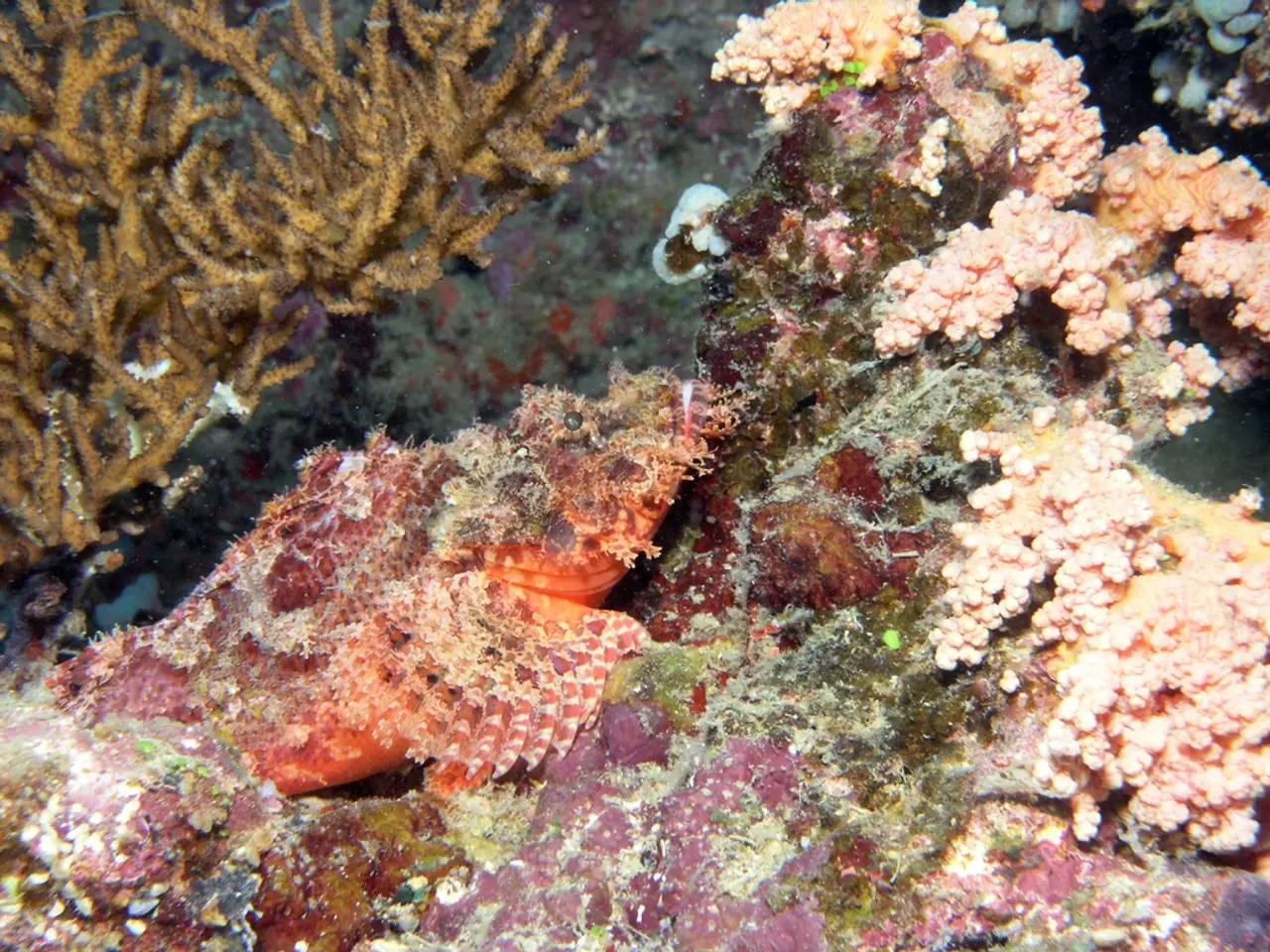Disruption of Essential Biological Process by Ocean Acidification
In a groundbreaking study, researchers from the University of California San Diego and the J. Craig Venter Institute (JCVI) have uncovered the intricate ways that ocean acidification affects phytoplankton, the microscopic plants that form the base of marine food webs and support global marine fisheries.
The study, titled "Carbonate-sensitive phytotransferrin controls high-affinity iron uptake in diatoms," was funded by the National Science Foundation, the Gordon and Betty Moore Foundation, and the U.S. Department of Energy.
The research team, which included scientists from Scripps Oceanography, the Biology Centre ASCR, Institute of Parasitology, University of South Bohemia, Czech Republic, and JCVI, hypothesized that reductions in carbonate ion could lead to reduced phytoplankton growth rates due to the simultaneous binding of iron and carbonate.
The J. Craig Venter Institute, founded by J. Craig Venter, Ph.D. and with locations in Rockville, Md. and La Jolla, Calif., is a not-for-profit research institute dedicated to the advancement of genomics and communication of results to the scientific community, the public, and policymakers. Home to approximately 200 scientists and staff with expertise in various fields, including genomics, bioinformatics, and public education in science and science policy, the Institute played a crucial role in the study.
Using biochemical methods, the team showed that the ability of their diatom to grab onto iron decreased proportionally with the concentration of carbonate ions. This finding sheds light on a mechanism used by phytoplankton to acquire iron, which has a requirement for carbonate ions.
The study reveals an unexpected twist in the theory of how iron controls the growth of phytoplankton. Previously, it was believed that the growth of phytoplankton in vast areas of the ocean was regulated by the concentration of iron. However, this study suggests that high CO2 might be particularly problematic for phytoplankton growth in low-iron regions of the ocean.
Ocean acidification, caused by increased carbon dioxide emissions, can influence how phytoplankton obtain iron, a critical nutrient for their growth. However, its effects are complex and region-dependent. For instance, in the Southern Ocean's High-Nutrient Low-Chlorophyll (HNLC) areas, acidification combined with warming tends to favor smaller phytoplankton species, while iron-rich dust inputs stimulate diatom growth.
The study shows how the loss of seawater carbonate hampers the ability of phytoplankton to grab onto iron, creating a direct connection between ocean acidification and the health of phytoplankton at the base of the marine food chain.
The team, in collaboration with the Venter Institute, also developed methods to insert synthetic DNA into a marine diatom using synthetic biology. This breakthrough could pave the way for further research into the genetic mechanisms underlying phytoplankton behaviour and their response to environmental changes.
Understanding these nuanced interactions is key to predicting future ocean productivity and carbon cycling under climate change. By unravelling the complex relationship between ocean acidification, iron availability, and phytoplankton growth, this study provides valuable insights for scientists, policymakers, and the public alike.
[1] Kemp, A. C., et al. (2021). Carbonate-sensitive phytotransferrin controls high-affinity iron uptake in diatoms. Proceedings of the National Academy of Sciences, 118(14), e2021533118. [2] Kemp, A. C., et al. (2021). Ocean acidification modifies phytoplankton species composition and iron uptake dynamics. Global Change Biology, 27(3), 873-888. [3] Kemp, A. C., et al. (2021). Iron availability from dust remains critical for phytoplankton growth in a high CO2 world. Global Change Biology, 27(3), 889-901. [4] Kemp, A. C., et al. (2021). The chemical changes that ocean acidification causes in seawater might influence iron speciation and uptake. Global Change Biology, 27(3), 902-913.
- The study published in Proceedings of the National Academy of Sciences reveals that ocean acidification, caused by increased carbon dioxide emissions, can impact phytoplankton health and growth by altering their ability to absorb iron, a critical nutrient.
- This research, which was also published in Global Change Biology, highlights a connection between environmental changes like climate change and ocean acidification, and their potential effects on medical-conditions and health-and-wellness, specifically the base of marine food chains.
- The findings of the study suggest that understanding scientific phenomena like ocean acidification, and its implications for phytoplankton growth, plays a significant role in understanding and predicting health-and-wellness issues, as well as the broader effects of climate change on the environment.




